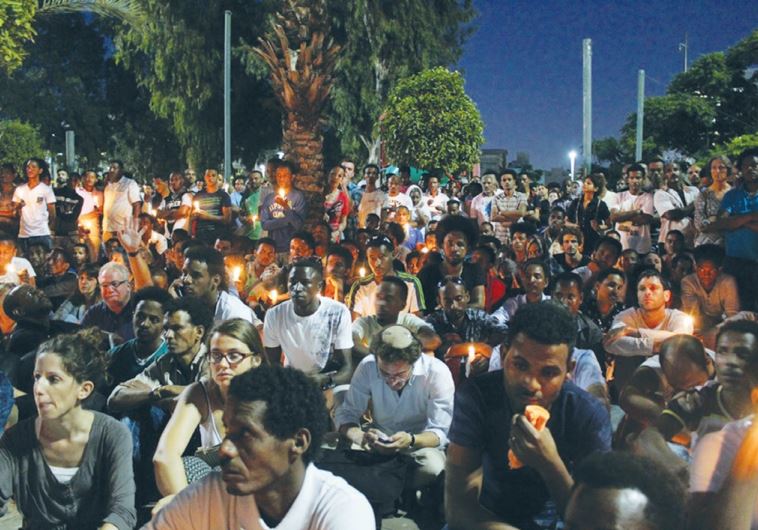‘We don’t feel at all safe here’
Asylum-seekers and Israelis hold vigil for Haptom Zarhum, the Eritrean man mistaken for a terrorist in Beersheba and killed.
 MOURNERS HOLD a candle-light vigil for Eritrean Haptom Zarhum in Tel Aviv’s Levinsky Park last night. (photo credit: BEN HARTMAN)
MOURNERS HOLD a candle-light vigil for Eritrean Haptom Zarhum in Tel Aviv’s Levinsky Park last night. (photo credit: BEN HARTMAN)